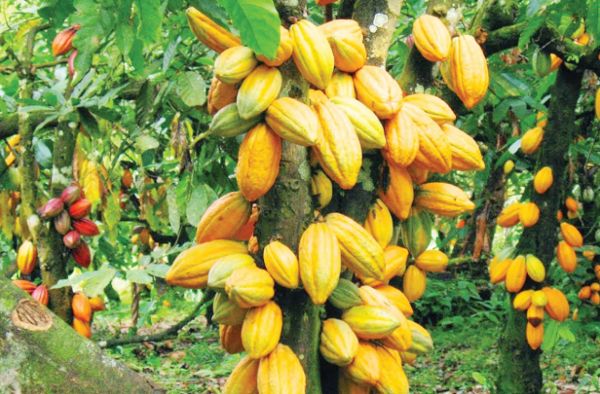
A quiet revolution is taking root across the cocoa belt of Nigeria’s South-West. From Osun to Ondo and Ekiti States, a new generation of Nigerian youths — many formerly unemployed or underemployed — are abandoning urban drudgery and white-collar dreams to embrace the earthy promise of cocoa farming, spurred by the meteoric rise in global cocoa prices.
In what industry watchers are calling a “green gold rush,” young Nigerians are acquiring farmlands in their ancestral villages, lured by the potential of cocoa beans that now fetch up to $11,000 per metric ton — a staggering leap from the average $2,200 just two years ago. The dramatic price surge, driven by global supply shortages and speculative trading, has breathed new life into Nigeria’s historically neglected cocoa value chain.
From Unemployment to Agripreneurship
Many of these young returnees are professionals disillusioned by the low earnings and high unemployment in Nigeria’s struggling economy. Take Adekunle Opatoyinbo, a 43-year-old university graduate in Osogbo, Osun State, who turned to cocoa farming after years of fruitless job hunting. Inheriting his father’s cocoa farm became a lifeline: “The moment I saw cocoa prices climb, I knew it was time to return. Now, the same farm I once ignored sustains my entire family.”
Similarly, Seyi Adegboye in Ondo State has leveraged his earnings from cocoa to build two houses — a testament to the rising profitability of what was once regarded as a subsistence venture. “Many of my peers have gone from job seekers to proud landowners and employers,” he told BRANDECONOMY.
Indeed, cocoa farming is no longer just a rural pursuit; it is fast becoming a youth-driven economic movement. The Cocoa Growers Association (CGA) confirmed a sharp spike in land acquisitions by young farmers and diaspora Nigerians seeking to tap into the boom.
Modernisation Meets Tradition
Cocoa farming in Nigeria is experiencing a long-overdue facelift. According to Mr. Abimbola Adewole, General Secretary of the CGA in Osun, the integration of modern farming techniques — mechanised sprayers, tractors, and fast-maturing hybrid seedlings — is drastically improving productivity and appeal. “The same old cocoa fields now offer better yields and quicker returns,” he noted.
Nigeria’s cocoa sector is also benefitting from innovations by institutions like the Cocoa Research Institute of Nigeria (CRIN), which has developed seedlings that mature in less than two years — a game changer for youth farmers seeking faster paybacks.
Yet, challenges remain. Farmers across Osun, Ondo and Ekiti lament the rising costs of agrochemicals, poor access to mechanised tools, climate variability, and insecurity — particularly herdsmen invasions and illegal logging that destroy farmlands.
“Labour is another major issue,” said Sadiq Saliu, a decade-old cocoa farmer in Ondo. “We now pay N300,000 annually per worker, yet it’s hard to find reliable hands.” He urged government intervention through subsidised inputs and protection of farm assets.
Cocoa Prices and the Macro Picture
The cocoa price spike is not occurring in isolation. It reflects a broader recalibration in global commodity markets. Analysts point to a confluence of factors: Ivory Coast and Ghana’s production shortfalls, climate-induced crop failures, and speculative buying on commodity exchanges.
Closer to home, Nigeria’s naira devaluation has amplified cocoa’s appeal. Alhaji Fatai Seidu, Chairman of Cocoa Growers in Ife East LGA, explained: “As the naira weakens, export-bound commodities like cocoa appreciate in naira terms, increasing domestic profitability.”
The impact is seismic: One kilogram of cocoa now commands as much as ₦10,000, meaning a modest 100kg harvest could yield over ₦1 million in revenue. “That’s the kind of incentive that turns passive youth into proactive farmers,” said Mr Oluwatosin Peter, an accountant-turned-cocoa-entrepreneur in Ile-Ife.
Rebuilding a National Asset
Once Nigeria’s pride and a major export earner in the 1960s and 70s, cocoa’s decline was accelerated by oil dependency and poor policy coordination. Now, stakeholders are urging a return to that golden era.
The Federal Government’s proposed National Cocoa Management Board (NCMB) is widely seen as a step in the right direction. “We need order and professionalism in cocoa marketing,” said Mr Dayo Ogundare, a veteran member of the Ondo State Cocoa Council. “The board should regulate pricing, ensure farmers’ welfare, and revive processing capacity.”
Ogundare also stressed the need for rural infrastructure — especially roads — and the enforcement of environmental protections. “Illegal loggers are destroying shade trees essential to cocoa cultivation. Without intervention, farmers will lose both yield and livelihoods.”
Ekiti’s Strategic Cocoa Revival
In Ekiti, the state government is playing a proactive role. According to the Commissioner for Agriculture and Food Security, Mr Ebenezer Boluwade, Ekiti offers 50% subsidies on seedlings, access to fertilisers and fungicides, and partnerships with local and international investors to build processing plants.
“We are determined to reclaim our legacy as a top cocoa-producing state. We’ve initiated extension services, improved rural facilities, and incentivised youth entry into the sector,” Boluwade said.
A Pathway Out of Poverty
Agricultural experts argue that cocoa, if well-managed, offers one of the most sustainable escape routes from poverty for rural youth. “The value chain is robust — from planting to processing and exporting,” said Mr Juwon Ogunbiyi, an agribusiness consultant in Ekiti. “Young farmers are now launching input supply businesses, farm management services, and direct-to-buyer models.”
However, experts also warn of pitfalls: deforestation, excessive chemical use, poor financial literacy, and inadequate access to credit continue to undermine growth potential.
Mr Kayode Obayemi, another agric expert, pointed out that without road access, farmers are forced to sell through middlemen at discounted prices, cutting off potential profits. “We need an ecosystem that supports farmers as entrepreneurs — with access to credit, insurance, technology and markets,” he said.
The Way Forward
As Nigeria’s youth rediscover cocoa farming’s hidden fortunes, the onus is now on policymakers and private sector players to build a resilient, globally competitive cocoa industry. This includes:
- Incentivising youth entry into the cocoa value chain
- Boosting access to modern inputs and mechanisation
- Investing in rural infrastructure
- Establishing local processing plants to capture more value
- Implementing regulatory oversight via the NCMB
Cocoa, Nigeria’s once-neglected cash crop, is staging a remarkable comeback — not just as an export commodity, but as a symbol of rural renewal, youth enterprise, and national resilience.
As global demand continues to rise and local interest deepens, the message to Nigeria’s youth is clear: the farm is fertile, the market is ready — and the time to plant is now.












